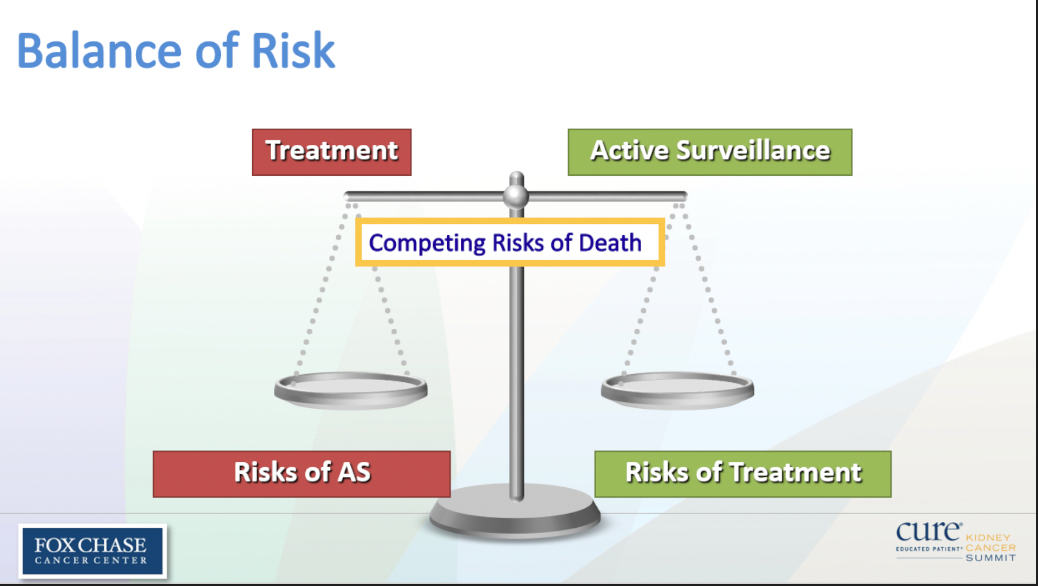
Kidney Cancer
Latest News
Latest Videos

More News

An expert discusses how the kidney cancer treatment landscape has changed over the last few years, although the number of options available for patients may make it somewhat confusing to navigate.

CURE spoke with Stacy Lloyd, board member of the VHL Alliance, about the treatment options for patients with VHL.

CURE spoke with Stacy Lloyd, board member of the VHL Alliance, to better understand VHL and its impact on cancer.

As a part of its “Speaking Out” video series, CURE spoke with Stacy Lloyd on behalf of the VHL Alliance, about discussing hereditary cancer with family members and how a diagnosis can lead to earlier surveillance for the disease.

CURE spoke with Stacy Lloyd, board member of the VHL Alliance, about disparities seen in VHL and its patient population.

CURE spoke with Stacy Lloyd, board member of the VHL Alliance, about VHL as a rare disease and resources available for patients to learn more.

Some patients with kidney cancer who are at a high risk of disease recurrence may benefit from adjuvant therapy; however, it is important recognize the potential side effects.

An expert explains the various treatment options available for a patient who is diagnosed with a small renal mass.

Some patients with small kidney tumors may be able to forego treatment and have regular medical checkups instead.

View the full CURE Educated Patient Kidney Cancer Summit on demand.

It is important that the whole community understand that basic research and clinical trials can continue to improve outcomes for patients with genitourinary cancer.

In this special issue of CURE®, we spoke with patients and health care providers about fertility issues, treatment advancements and other topics related to kidney, prostate, testicular and bladder cancers.

Patients and caregivers of those with kidney cancer can become active members in their care by staying up to date on the latest treatments and medical advances.

Clinical trials that are designed to ask patients with bladder, kidney and prostate cancer about their smoking status may help patients better understand what to expect from their treatment based on their smoking habits.

Immunotherapy and tyrosine kinase inhibitors may potentially change the treatment paradigm for patients with renal cell carcinoma, the most common type of kidney cancer in adults.

Inhibiting a cholesterol receptor could prevent a certain type of kidney cancer from growing, according to recent research.

The approval of Welireg, according to an expert at Massachusetts General Hospital, is “extremely important” and will “dramatically” change how certain von Hippel-Lindau-associated cancers are treated.

Frontline Keytruda plus Lenvima for advanced renal cell carcinoma is an effective treatment with life-prolonging benefits, although patients should be monitored for side effects that can be easily managed.

The FDA granted approval to Welireg for the treatment of patients with von Hippel-Lindau-associated kidney cancer, CNS hemangioblastomas and pancreatic neuroendocrine tumors.

Patients on Keytruda/Lenvima lived for an average of 23.9 months without their disease progressing, compared to those on a different treatment, with an average of 9.3 months.

The FDA will speed up the review of Keytruda to treat patients with kidney cancer after they’ve undergone surgery.

Post-menopausal women may be at an increased risk for kidney cancer if they are diagnosed with type 2 diabetes.

The risk for under- or over-treatment for kidney cancer may be higher in women, in addition to Black and Hispanic patients.

From the recurrence of congressman Jim Hagedorn’s kidney cancer to a 100-mile bike race for charity, here’s what’s happening in the cancer landscape this week.

The combination of Lenvima and Keytruda was associated with improvements in survival and response rates over Sutent alone in various subgroups of patients with advanced renal cell carcinoma.














